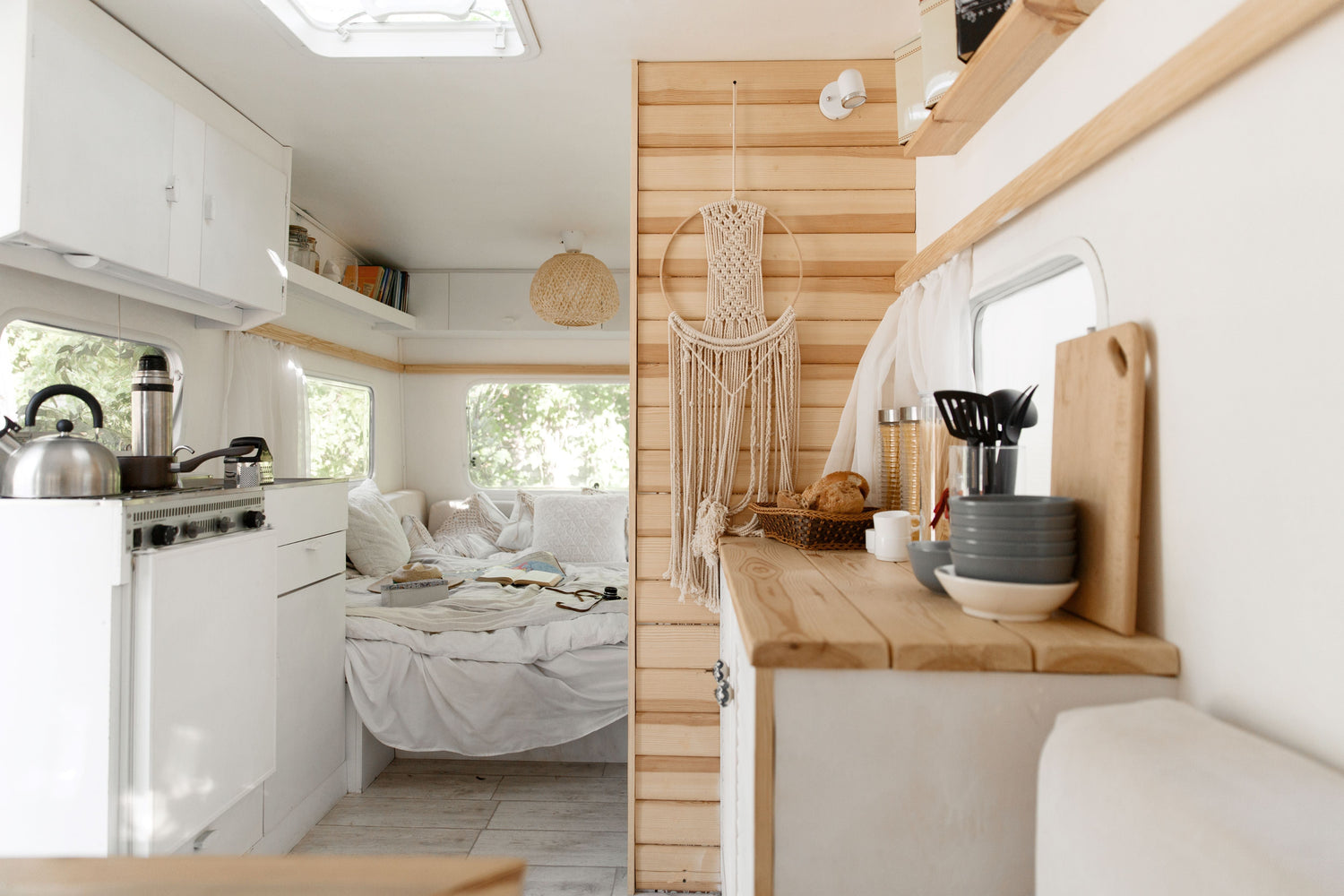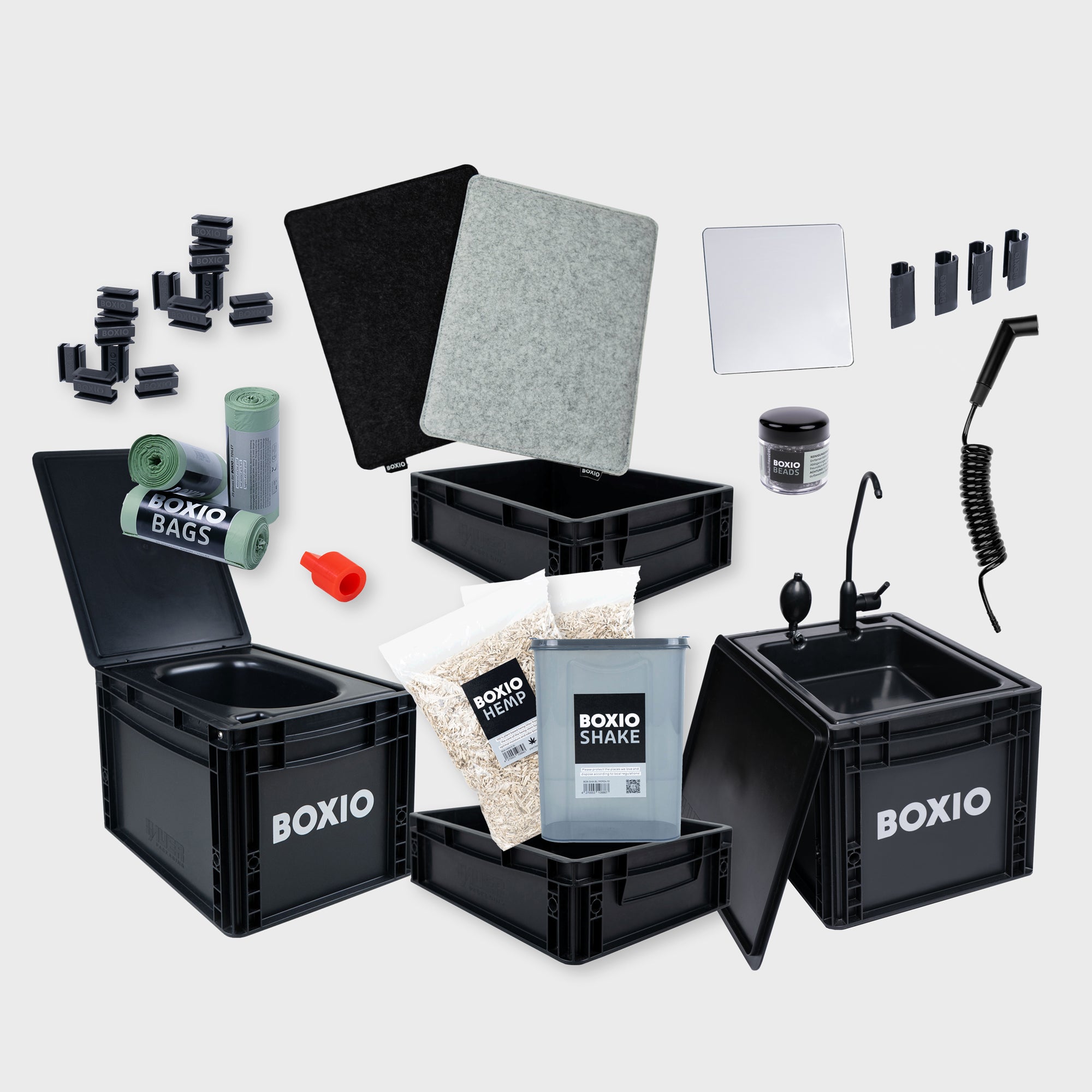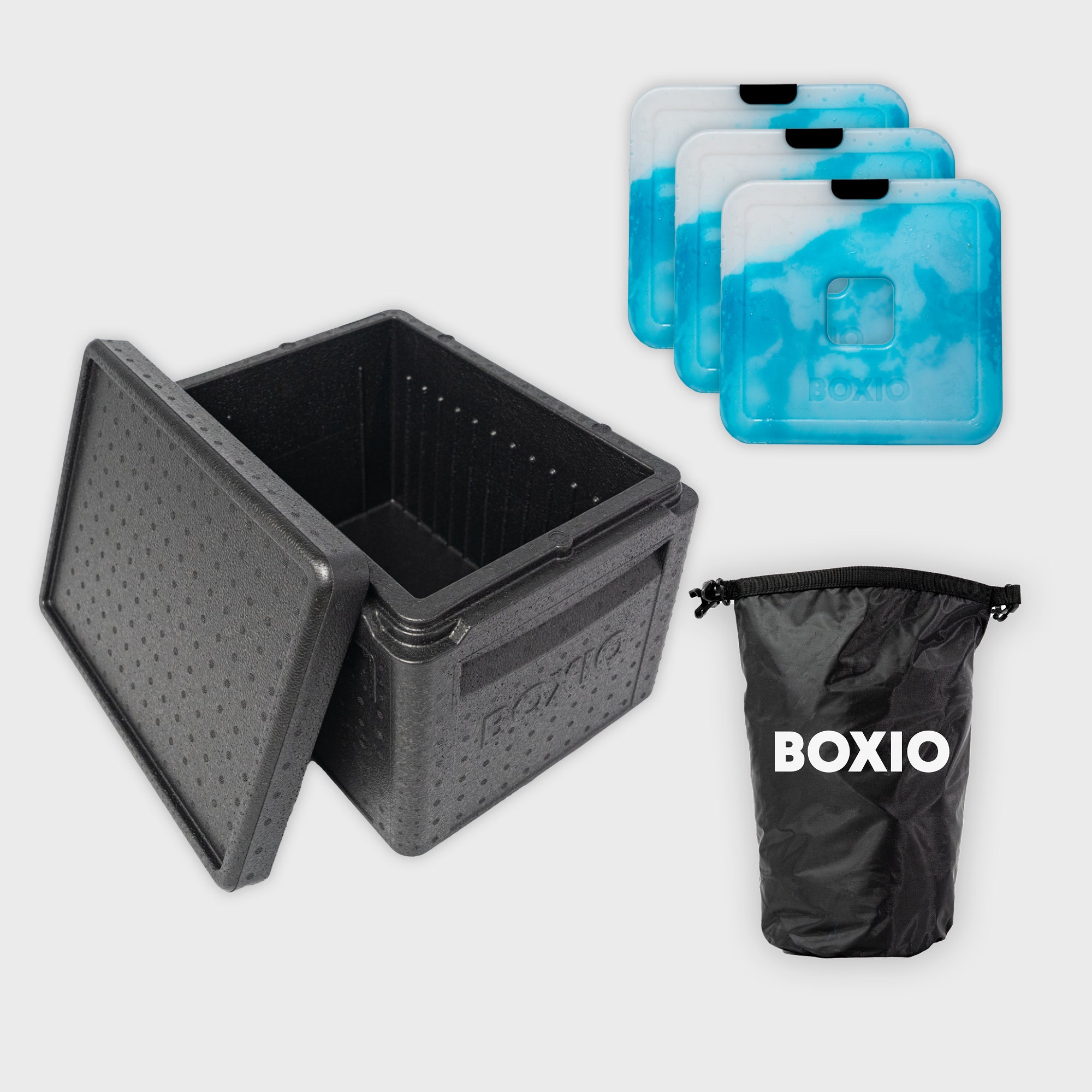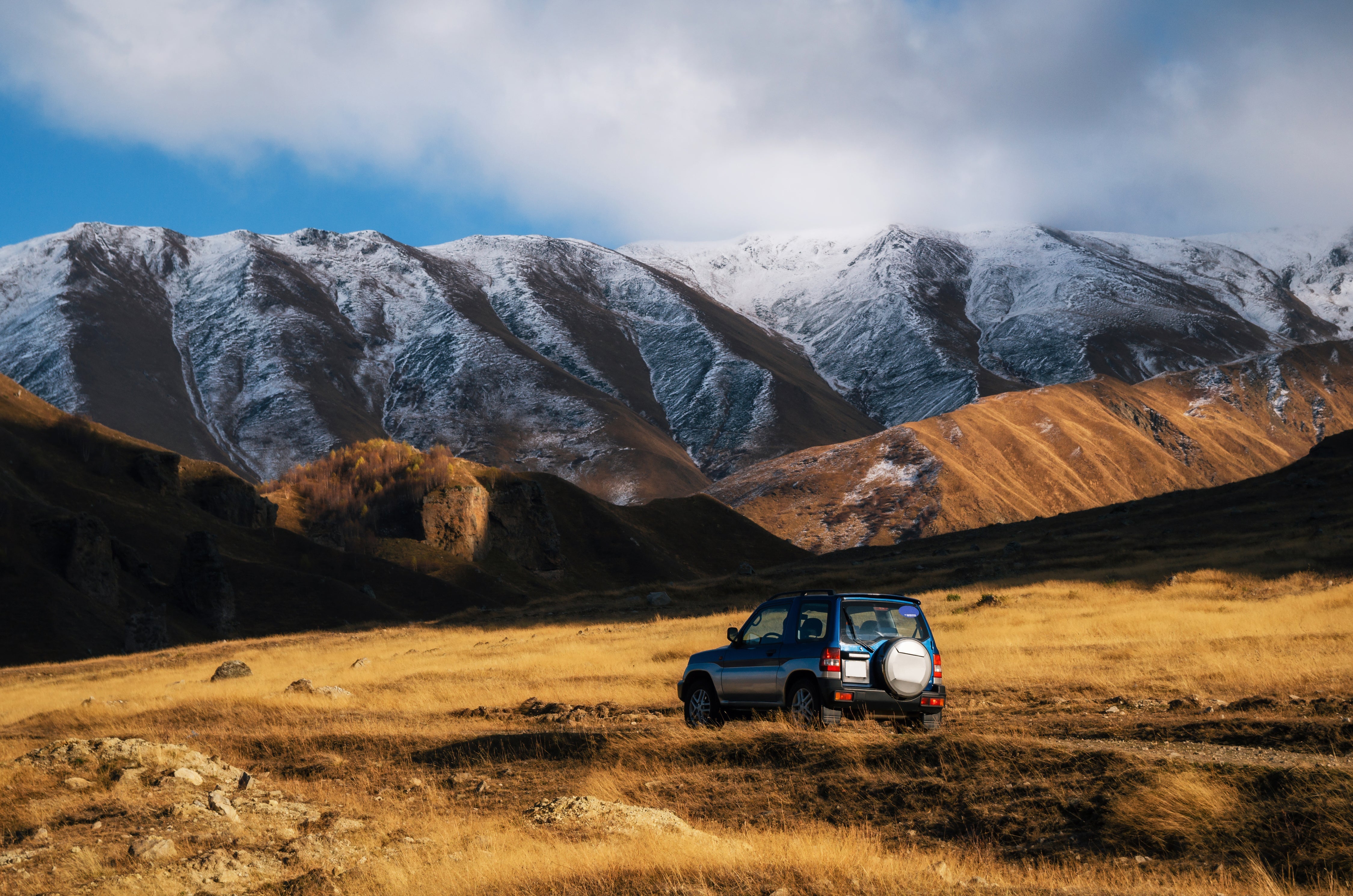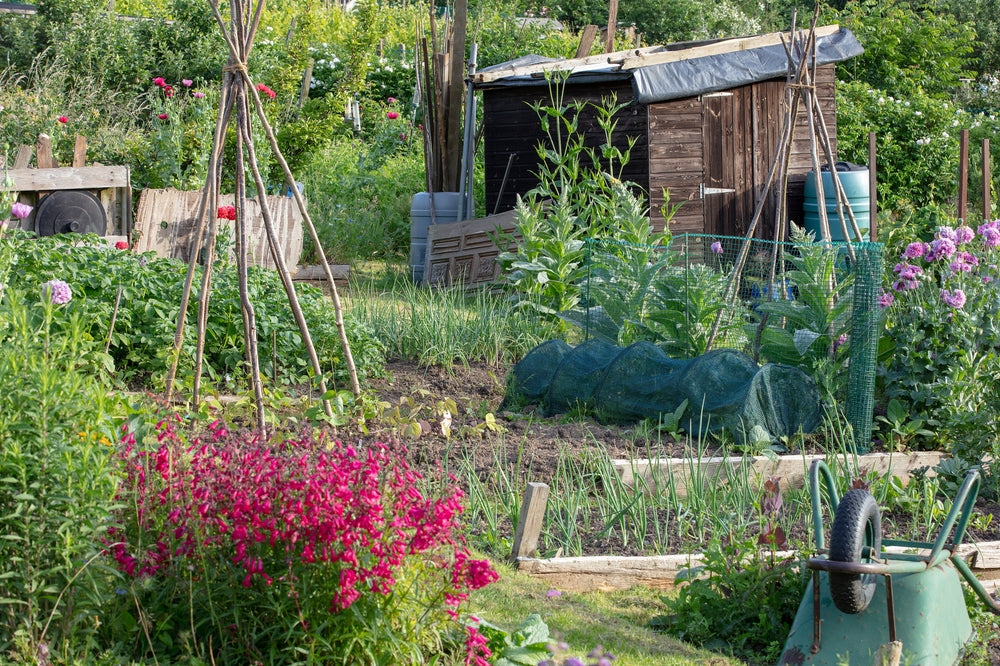Have you always dreamed of traveling in your converted van, seeing new places and enjoying freedom and life?
Here you can find out how to convert your van and learn helpful tips and tricks for converting the interior of your dream car.

Camper conversion: step by step to the perfect camper
First step: the right camper van for the conversion
Not every car is suitable for conversion into a camper van. In addition to various models of ready-made motorhomes, there are also numerous campers that are suitable for conversion.
Commercial vehicles, panel vans, minibuses or vans are suitable as base vehicles. Popular models include Mercedes Sprinter, VW Bullis T3 and T4, Ford Transit, Nissan Primastar, Opel Vivaro, Renault Trafic or a bus that can be converted into a camper.
Of course, you can also buy a ready-made motorhome and carry out individual conversions. Ready-made motorhomes are generally more expensive than vans that you convert yourself.
Second step: cleaning the van
If you want to remove your old van yourself, there are a few things to consider. Everything should be removed from the camper before the removal so that you can remove the rust and give the car a thorough clean.
If you are passionate about tinkering and craftsmanship, you will have a lot of fun with the conversion! If you are less talented, you can also entrust the conversion to professionals. At the end of the day, the quality has to be right to ensure you have a great vacation.
Third step: insulation and planning
To ensure good quality during your trip, insulation in the motorhome is a must. Good insulation reduces condensation and counteracts the formation of mold and damp air in the camper.
Styrofoam, rock wool or Armaflex have proven themselves as insulation for the camper. If you want to use sustainable materials, you can also buy cork for insulation.
The insulation material differs in price and delivery time. Make sure that you have all the materials and products available before you start work, as the delivery time can otherwise delay the work unnecessarily.
Plan in advance where new windows will be installed in your van and where the connections will run.
Prior planning is particularly important for the power supply. Think about how many electronic devices need to be powered during your vanlife, where these devices should be placed in the van and what kind of power sources you prefer.
Flexible solar systems that have been specially developed for use in campers and motorhomes are the most sustainable. They often have a power storage unit and flexible solar cells that you can stick on the roof of your van. Many travelers use a gas generator for the kitchen.
Fourth step: the interior fittings
Before you can start installing the furniture in your camper van, all surfaces such as the floor and walls should be covered.
Wooden cladding, where the boards are simply slotted together, is particularly popular. Saw the boards to the right length and, if necessary, make cut-outs for sockets.
PVC flooring is suitable for the floor covering. PVC is not only inexpensive, but also very robust. You can find many different designs on the market.
The price varies depending on the brand. Ask for customer advice in a specialist store and also note the delivery time here.

Cooking
If you want to cook in the camper, you should consider in advance what utensils and equipment you want.
Do you need a sink installed in your kitchen unit or will a foldaway sink suffice? Which gas oven would you like to have and which accessories should there be room for in the camper?
These questions are important in order to have enough storage space for your utensils at the end of the conversion.
Camping crockery is a sensible purchase, as it requires little storage space, is available at a relatively low price and is easy to use in the kitchen.

Hygiene
Hygiene in a van is probably very important for everyone. To feel comfortable, you need to be able to go about your hygiene rituals in peace and preferably in privacy.
So what can you do if there is not enough space in the bus for a wet room with a shower, washbasin and toilet?
There are many options for fitting out a wet room in a camper van. In addition to foldable washbasins and solar showers, there is also a convenient solution for the toilet.
Dry toilets, such as the BOXIO - TOILET, are a discreet and practical solution for on the road. The toilet fits in every van and has a capacity for eight to ten toilet visits.
It has a hygienic separating container with lid and a leak-proof urine canister. The toilet is very leak-proof and does not spread any unpleasant odors in the van.
It offers an environmentally friendly alternative to chemical toilets.
Please note that the delivery time can be several weeks, especially at the start of summer. Products in the shopping cart cannot be used on your trip - it pays to order quickly.

Storage space
You need enough storage space to be able to stow all your utensils safely. In a camper van, space is limited, which can often lead to problems when packing.
If you have a bus, you have more options than in a van, but even here you have to make good use of every centimeter to be able to stow everything.
For example, use a rear pull-out or a rear garage in your van.
A rear pull-out can usually hold up to 100 kilograms and holds everything you want to store. The advantage is that it is quick and easy to fit. You also have a good overview of your belongings thanks to the tidy arrangement.
Rear pull-outs can be pulled out and you can lock the rails while driving.
If you have a camper or bus with a good height, you can install a roof storage box. This can be used to store clothes, blankets and pillows, for example.
Roof storage boxes are usually made of aluminum and are therefore very light and robust. They are easy to install and remove and do not obstruct your view when driving.
Ask for a quote to compare products and note the delivery time.

Sleeping
The most important thing when fitting out your van is the bed. Good, restful sleep and good comfort are the be-all and end-all of a successful trip in a van or bus.
A mattress that lies across the van and stands on a module that offers additional storage space under the bed is suitable for sleeping.
Many people build a fold-out bed into their bus, which can be used as a bench during the day and converted into a bed at night.
Think about which option appeals to you the most and which suits your van.
Make sure that you can stretch out on the mattress in your bed, otherwise you may suffer back pain.

Coziness in Vanlife
Everyone likes their home to be cozy. This also applies to living in a van.
With a little decoration and light, a van immediately feels much more homely and cozy.
There are endless possibilities for decorating a van. The only question here is what you like.
Are you more of a surfer type who prefers a surfboard and a maritime climate, or would you prefer something a little cozier and warmer?
Carpets, cushions, curtains and a tablecloth will give your van a cozy glow.

What's the difference in van interiors?
If you look on the Internet, you can buy vans at very different prices. Some have already been converted, others are yet to be converted. But what exactly is the difference between all the offers?
If you buy a van that has already been converted, there are differences in the modules.
The basic module
The basic module is suitable for a short trip with the van over two to three days. The van has a side window, a roof window, a kitchenette with a wooden worktop and fresh water and waste water canisters.
You also get a cool box, a two-burner mobile gas stove, a built-in bed and a toilet.
The van has TÜV approval as a camper van.
The Premium module
The Premium module is suitable for people who want to travel a little longer with their van.
In addition to the features of the Basic module, there is also a ceiling fan, larger fresh water and waste water canisters, a hanging cupboard, a refrigerator, a permanently installed two-burner gas stove, a separate dry toilet, a flexible bed solution and also TÜV approval as a motorhome.
The deluxe module
The Deluxe module is suitable for anyone who really wants to enjoy van life.
In addition to the features of the Premium module, the Deluxe van has two side windows, a kitchenette with a high-quality worktop, a hot water boiler, two power sockets and a lithium battery. A rear garage is also integrated.
This van also has TÜV approval as a motorhome.

Frequently asked questions about the Vanlife interior conversion
Which car can be converted into a camper?
If you are looking for a used basic vehicle for a conversion, you should look for a panel van, minibus or van. These are well suited for conversion and offer the opportunity to enjoy the van life.
The most popular models include the Ford Transit, Mercedes Sprinter, Nissan Primastar, Opel Vivaro, Renault Trafic and the VW T3, T4 and T5 vans. A truck or bus can also be converted into a camper.
Which wood is suitable for the interior paneling in the camper?
Light and splinter-proof wood such as poplar, beech or birch is suitable for the interior cladding. If you need to pay attention to the weight of the cladding, you can use plywood.
Spruce wood is particularly suitable as construction wood. It is very elastic and at the same time strong, has a low weight and is easy to work with. The raw material spruce is comparatively inexpensive and above all sustainable, as it grows back relatively quickly.
Why Vanlife?
Even if the advantages and disadvantages are very individual, many people opt for a vanlife in order to feel free and independent. With your own van, you are independent of hotels, popular travel times and tourist destinations.
You can camp in the great outdoors and experience adventures that you probably wouldn't experience in a hotel. Whether it's a spontaneous weekend trip or a trip to Europe - with your own camper van, you can spontaneously pack your things and hit the road.
What costs should I expect for the conversion?
The costs for the conversion naturally vary depending on the materials, purchase costs for the car and furniture. Hidden costs are often underestimated. On average, you can expect to pay around 15,000 euros for the conversion of a van. When calculating, take into account the costs for tools, electronics, heating, water supply, building materials, add-on parts, insulation, rust removal and the car itself.
How long does the removal take?
Depending on how much time you can invest in the conversion, you should plan for months to years. People who have a full-time job and do the conversion as a hobby on the side at the weekend will of course need much longer than people who can look after their van all day.
The delivery time of the materials also influences the conversion time. Order the materials in good time and calculate the delivery time for all utensils into your conversion.


